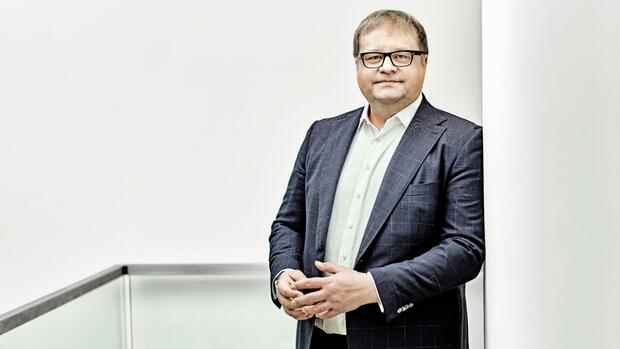The Skoda Purchasing Board also takes on the task force for chips in the Volkswagen Group.
(Photo: Skoda)
Dusseldorf The numbers are bad: In 2020, the Volkswagen Passenger Cars brand was able to sell 525,000 cars in Germany – last year that grew to 490,000. In the same period, the entire VW Group grew from 9.3 to around nine million vehicles. After the first Corona year, everything should actually get better again. But then came the persistent lack of chips – and things went even further downhill.
Karsten Schnake is the new bearer of hope in the VW Group: He should stabilize the chip supply again and bring it up. The 53-year-old engineer is now taking over the chip task force in Wolfsburg, which the company founded just under a year ago after the first warning messages about semiconductor supplies surfaced. VW manager Heiner Lanze, who had previously headed the task force, is retiring.
“It is a good idea to put this experienced man on this difficult task,” said Wolfsburg board members about Karsten Schnake. After studying engineering in Braunschweig, the native of Minden started his first job at Volkswagen in 1996 – and has not left the group since then. Schnake spent most of his Volkswagen decades in purchasing, initially in Wolfsburg and later in China. He last made a major career step in the summer of 2020 when he was appointed to the board of directors for purchasing at the Czech subsidiary Skoda.
Now, with the management of the Chip Task Force for the group, there is an additional task. Because Schnake should keep his board position in the Czech Republic and head the task force from the Skoda headquarters in Mlada Boleslav near Prague.
Top jobs of the day
Find the best jobs now and
be notified by email.
The entire Volkswagen Group did anything but well in 2021, the first year of the major chip shortage. Other automakers like Tesla, BMW and Toyota were much better and had to accept comparatively small losses in production numbers. The development of Tesla is impressive: The US newcomer was able to almost double production despite the supply crisis for semiconductors.
Volkswagen cars and Skoda are losers in the chip crisis
Volkswagen had to spread the lack of chips across all group brands. The premium subsidiaries Porsche and Audi were primarily served in order to be able to keep the group result high despite the lack of semiconductors. The core brand Volkswagen Passenger Cars and Skoda were among the losers because they had to restrict their production much more than the better positioned premium brands.
This year everything should really get better again, even with the more heavily affected volume brands such as Volkswagen and Skoda. Karsten Schnake is expected to make a significant contribution to improving the supply situation. Above all, his many years of experience as a purchasing manager should help him.
And Schnake knows crisis. When a tsunami nearly destroyed a nuclear power plant in Fukushima, Japan, today’s Skoda board of directors in Wolfsburg took care of the car company’s supply chains. After the devastating tsunami, the parts supply in the automotive industry collapsed in places. The best-known example at that time were lacquer pigments, which were suddenly missing in Europe as well. For a while, cars could no longer be painted in all colors.
During the supply crisis in 2011, Karsten Schnake had to let his talent for improvisation play. With success. Volkswagen mastered the time of shortage. This has now been remembered in Wolfsburg – with the expectation that the Skoda board of directors will also act with a lot of ingenuity when it comes to chips and acquire additional semiconductors.
Schnake’s unorthodox approach
The Volkswagen Group’s task force should not, however, limit itself to increasing the number of chips supplied. It is also about taking a closer look at the use of individual semiconductor types. Maybe Karsten Schnake will find ways and possibilities to do without one or the other chip in the car. Or the software used in the vehicle is rewritten a little, and a chip that is currently being offered by the suppliers will fit.
At Skoda in Mlada Boleslav it is said about Karsten Schnake that his sometimes somewhat unorthodox approach helped the entire company and brought it forward. “He’s a real technology freak who sometimes juggles four cell phones at the same time,” says a colleague. His years in China would probably have had a major impact on him. What Schnake values about the Chinese is their great determination, combined with quick implementation. Perhaps that will also help with chip planning in Wolfsburg in the near future.
More: Chip shortages and e-car boom: these are the challenges German car manufacturers will have to master in 2022.
